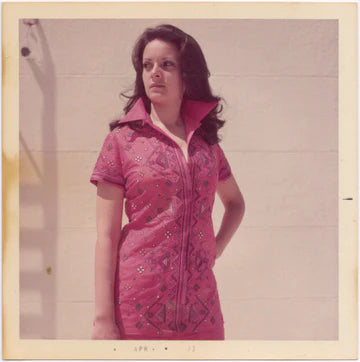Small Heading

At a moment of heightened global conversation around women’s rights and dominion over their bodies,Labour of Loveexplored Palestinian embroidery through the lenses of gender, labour, symbol, capital and class. Structured around these thematic poles, the exhibition traced Palestinian embroidery’s shift from an historic, individual practice, associated with self-expression, to a cultural artefact and marker of national identity. The exhibition examined the politicisation of Palestinian embroidery, its circulation as image in paintings and posters, the implications of its commodification, and the ethics of its production by NGOs today.
The exhibition is coming to Kettle’s Yard, Cambridge, and the Whitworth Gallery, Manchester, in 2021-22 asMaterial Power: Palestinian Embroidery.
The second exhibition curated by Rachel Dedman for the Palestinian Museum, Labour of Loveexpanded upon the Palestinian Museum’s 2016 satellite exhibition,At the Seams: A Political History of Palestinian Embroidery, Dar el-Nimer for Arts and Culture, Beirut. Building on years of research and fieldwork, this new edition critically re-oriented approaches to Palestinian embroidery’s history and contemporary significance.
Labour of Love unfolded a material history of Palestine, and told little-heard stories through the intimate catalyst of clothing. At the heart of the exhibition are 100 historic dresses and accessories, drawn from every region of Palestine. These ranged from militant, nationalistic ‘Intifada dresses’, which rendered women’s bodies active sites of political resistance during the First Intifada; to a dress donated from one woman to another after the Nakba, patched with cloth from a sack of UNRWA flour.
Other objects spoke to the melding of foreign fashion with traditional detail as early as 1921, and to the use of embroidery in the self-fashioning of Palestinians in 1970s Beirut, through polaroids of bouffanted women in pink embroidered jumpsuits—the earliest designs of the NGO INAASH. Though men are generally not perceived as embroiderers, the exhibition featured objects and testimonies from men who embroidered inside Israeli jails. Their work mingles expressions of national pride with romantic love, challenging reductive definitions of embroidery as ‘women’s work’.
Placing dresses in conversation with archival photographs, posters, paintings, music and newly-commissioned video, Labour of Love brought together diverse narrators and narratives, casting fresh light on paradigmatic cultural material.
